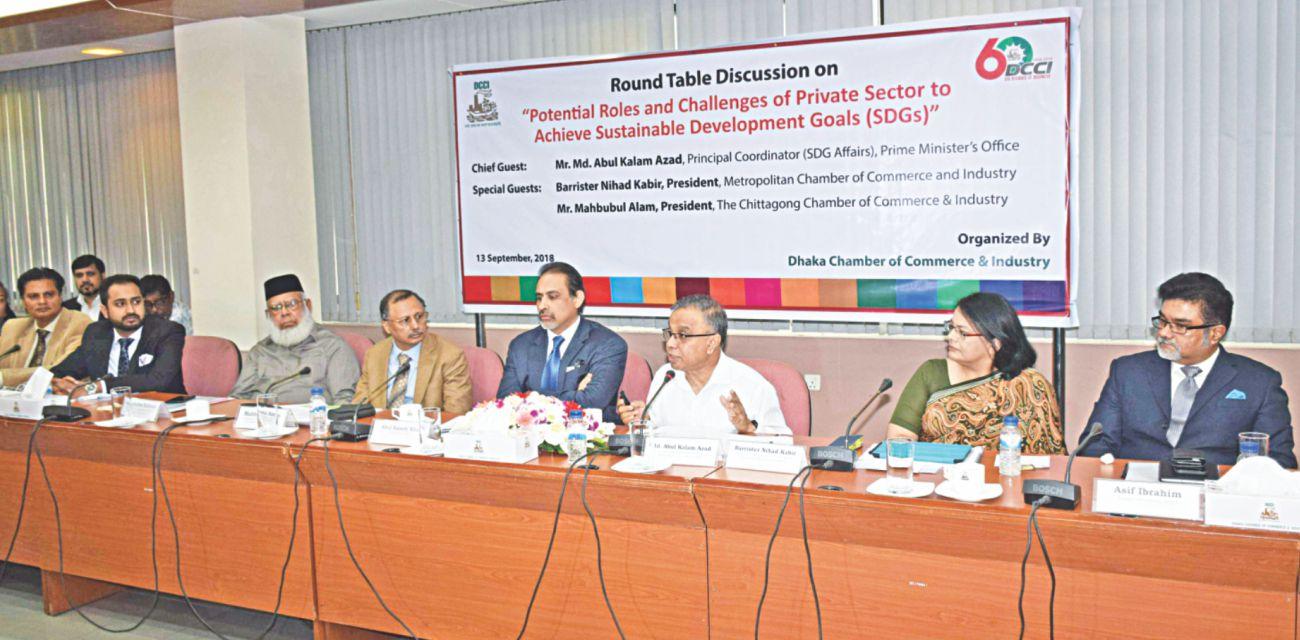Govt plans long-term tax policies

The government will frame long-term tax policies to help businesses get rid of the anxieties stemmed from the frequent changes to tax structures brought in by the revenue administrator, a top official of the Prime Minister's Office said yesterday.
The National Board of Revenue often brings changes to policies related to tax and value-added tax, hampering trade and business, said Md Abul Kalam Azad, principal coordinator for SDG affairs at the PMO.
“As a result, local and foreign investors do not feel comfortable to invest. So, we are taking initiatives to remove these types of bottlenecks.”
He shared the plan at a discussion on the roles and challenges for the private sector in achieving the sustainable development goals (SDGs), organised by Dhaka Chamber of Commerce and Industry (DCCI) at its auditorium.
In the face of changes in tax rates and policies almost every year, many businesses and entrepreneurs have long been demanding a consistent tax and related policies so that they can predict, take decisions and make investment for a long term.
Azad said the private sector is driving the country's economic growth, so its role is highly important to attain the SDGs.
The government is building facilities for entrepreneurs that align with the SDGs, he added.
Azad called upon the private sector to invest in the economic zones where the government is creating facilities so that entrepreneurs get utility connections and services easily.
“The government is also undertaking a policy to nurture entrepreneurship, create new business and fill the investment gap in attaining the SDGs.”
Bangladesh needs $66 billion in additional financing every year to bankroll activities to attain the SDGs by 2030. Nihad Kabir, president of the Metropolitan Chamber of Commerce and Industry, Dhaka demanded a transparent and long-term regulatory framework.
She said financing SDGs will not be a problem as Bangladesh may try to get money from the climate change fund.
She emphasised access to technology and vocational education to develop skilled workforce.
Mahbubul Alam, president of Chittagong Chamber of Commerce and Industry, said policies, rule of law and an effective regulatory framework are necessary to attain the SDGs.
He said joint efforts from the private and public sectors are needed to accomplish the goals.
Abul Kasem Khan, president of the DCCI, said
should focus more on creating jobs and building institutional capacity.
He said the private sector is facing various challenges such as getting energy at affordable prices and from reliable sources, inadequate technology, high cost of compliance, outdated infrastructure, and high cost of doing business.
“We need policy continuity, consistency and cohesiveness for more engagement of the private sector in attaining the SDGs.”
Asif Ibrahim, a former president of the DCCI; Towfiqul Islam Khan, senior research fellow of the Centre for Policy Dialogue; Tafsir Mohammed Awal, a director of Multimode Group, and MA Razzaque, research director of the Policy Research Institute of Bangladesh, also spoke.
Nazneen Ahmed, a senior research fellow of the Bangladesh Institute of Development Studies, presented the keynote paper.
